Reading has been on the rise since the COVID-19 outbreak, with studies showing that sustained reading surged in America during the most intense periods of the lockdown. With more time on their hands, some adults dove into books they had been hoping to get to, while others revisited favorite titles. Families read aloud together, finding joy in a former pastime.
Ahead of the start of summer, Angelus contributors explored what historians, novelists, poets, and memoirists were writing and publishing in the past year, which they recommend below.
Our contributors chose books that speak to the perennial themes about what it means to be a human being: why we’re here, where we’re going, and why it matters. Some of these authors reach back into history, examining how forefathers and ancient thinkers answered those questions.
Others tackled the experience of loneliness and lockdown as it unfolded. And still others look more directly at Jesus Christ, who alone “is capable of giving the full and definitive answer,” as St. Pope John Paul II wrote.
We hope these titles help you keep up the habit of reading or begin anew.
MIKE AQUILINA
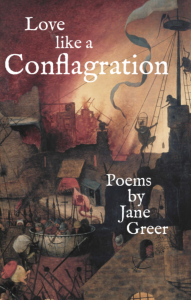
Jane Greer’s “Love Like a Conflagration” (Lambing, $15.95)
This book may be the best collection of poems I’ve ever read. Each of its 60 poems is meticulously crafted, cast in traditional form.
Their subjects range from the might of the Archangel Michael to the glorious burn of bourbon as it goes down. Greer’s hallmarks are clarity and depth. She traces human actions to their metaphysical roots. She sketches the ultimate consequences of our casual choices.
The book’s back cover bears deserved praise from poets, critics, and theologians. If you love poetry, this book will be the best book you read this year. If you don't, this book will show you what you’ve been missing.
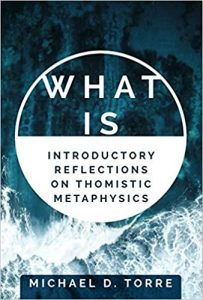
Michael Torre’s “What Is” (Scepter, $24.95)
Torre, a philosopher, eases the rest of us — ordinary nonacademic readers — back into philosophy’s great conversation. Torre is a master teacher, and this text is the refinement of the master’s efforts, over the course of 30 years, to make St. Thomas Aquinas vividly clear to undergraduates.
Unlike just about every other book ever written on metaphysics, this one is lively, filled with reasoned responses to the New Atheism and trendy relativism. The main argument of the book leads to God. But it is addressed, in a friendly and respectful way, to readers who may or may not be open to God’s existence.
Philosophy is the love of wisdom, and such love can flourish (and should) outside the university. If you’ve always wanted to read philosophy, but always choked by Page 10, you now have your book.
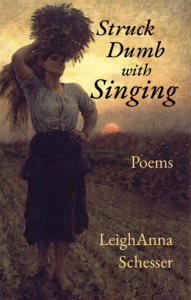
LeighAnna Schesser’s “Struck Dumb with Singing” (Lambing, $15.95)
This is Schesser’s first book-length collection of poems, and it’s extraordinary. Her lines display a deep knowledge of nature and enchanting musical quality: “What is a bell but the burden of echo? / Announce! And tell, and tell, and tell. // The keeper, the farmer, or child who knows / carries the news to the bees: toil and knell. …”
With Catholic sensibilities she explores mercy, prophecy, incarnation, revelation. Especially strong are Schesser’s poems about marriage and motherhood.
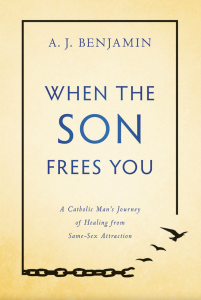
A.J. Benjamin’s “When The Son Frees You” (TAN, $27.95)
Amid the rage of public discussions about same-sex attraction and conversion therapy, the media often focus on horror stories and tragedy. In this memoir is the story of what happens when a troubled adolescent gets sound spiritual advice and follows through on it. The subtitle summarizes the plot: “A Catholic Man’s Journey Of Healing From Same-Sex Attraction.”
Benjamin charts the course of his healing through high school and college and into his decades of professional and (happy) family life. He is married and the father of three. Benjamin doesn't flinch from the difficulties; nor does he bow to secular pieties. He speaks a powerful, countercultural message most needed today.
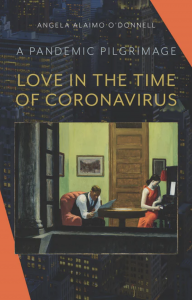
Angela Alaimo O’Donnell’s “Love in the Time of Coronavirus” (Paraclete, $19)
If you've wondered what good can come from the pandemic, read this book. She has taken the rough, raw material of our difficult year and fashioned it into poems.
A New Yorker, O’Donnell experienced the plague in one of its epicenters, and early on she contracted it herself. Her lines capture the moment in memorable images: the loneliness in empty streets, churches, and classrooms — and in meals taken alone; the horror in bodies piled for mass burial on Hart Island.
O’Donnell is a master of the sonnet form in its many varieties, but her voice is persistently informal, colloquial, and street-wise. For its loving detail, this book is a perfect remembrance of the year that was 2020.
ROBERT INCHAUSTI
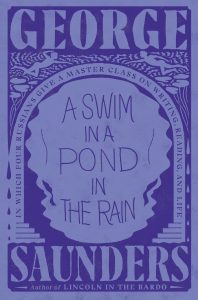
George Sauders’ “A Swim in a Pond in the Rain: In which Four Russians Give a Master Class on Writing, Reading, and Life” (Random House, $14.99)
This book is an anthology of Russian short stories selected with interpretive essays by National Book Award winner George Sauders.
“We’re going,” Sauders tells us, “to enter seven fastidiously constructed scale models of the world, made for a specific purpose that our time maybe doesn’t fully endorse, but that writers accept implicitly as the aim of art — namely, to ask the big questions, questions like: “How are we supposed to be living down here? What were we put here to accomplish? What should we value? What is truth, anyway, and how might we recognize it?”
Rest assured Tolstoy, Turgenev, Gogol, Chekhov, and Saunders do not disappoint. More than a master class on the short story, this is a master class on reading, feeling, understanding, empathizing, and drawing wisdom from experience.
CHRISTOPHER KACZOR
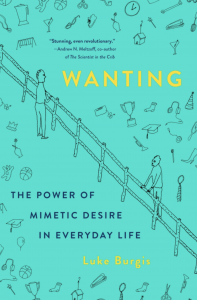
Luke Burgis’ “Wanting: The Power of Mimetic Desire in Everyday Life” (St. Martin’s Press, $20.99)
At Stanford University, the late great Catholic professor René Girard came to the insight that whatever we want is characteristically shaped by whatever we think other people want. Translating the insights of Girard into everyday language, Burgis’ book helps us take control of our lives by helping us to more consciously shape our desires.
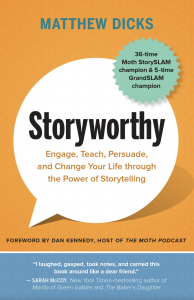
Matthew Dicks’ “Storyworthy: Engage, Teach, Persuade, and Change Your Life Through the Power of Storytelling” (New World Library, $15.63)
Dicks reveals the secrets to his success in storytelling competitions, teaches us how to find the great stories in our everyday lives, and regales us with amazing (and true) stories from his own life.
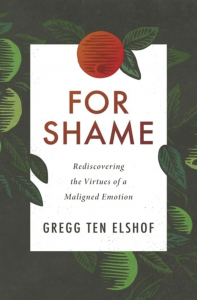
Gregg A. Ten Elshof’s “For Shame: Rediscovering the Virtues of a Maligned Emotion” (HarperCollins Christian Publishing, $18.99)
In a culture that is suspicious of shame but accepting of shaming, Ten Elshof’s book makes a powerful case that we’ve gotten things exactly backward. This work places shame (and shamelessness) in the context of rival views of human flourishing and the history of philosophy, East and West.
This book also takes empirical research in psychology seriously but not uncritically. His reinterpretation of the story of the prodigal son as a rescuing from shame is deeply illuminative. Clearly written, free of technical jargon, and biblically informed, Ten Elshof’s absolutely terrific exploration of shame deserves wide readership.
EVAN HOLGUIN
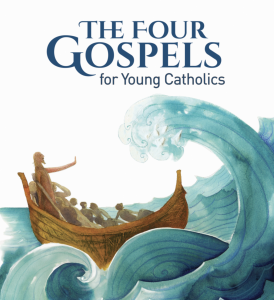
Ciucci, M. Fossati, G. Perego, and P. Sartor: “The Four Gospels for Young Catholics” (Pauline Books and Media, $29.95)
This collection of the Gospels, recommended for ages 9-11, is an indispensable tool for raising a generation that knows how to encounter Christ. Rather than paraphrasing the Gospels — or leaving out the more difficult or complicated passages — this book offers the complete NRSV Catholic Edition text accompanied by whimsical illustrations reminiscent of Roald Dahl and age-appropriate commentary.
The result is a prayerful children’s Bible that neither trivializes the faith nor makes it too daunting for young Catholics to approach. “The Four Gospels for Young Catholics” has been my go-to gift for first communicants and is invaluable for catechists of younger children.
ALISON NASTASI
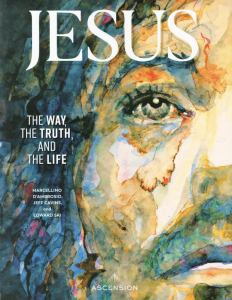
Marcellino D’Ambrosio’s “Jesus: The Way, the Truth, and the Life” (Ascension Press, $15.99)
I’ve listened with rapt attention to stories told by friends about their Holy Land pilgrimages. My inner-history nerd is fascinated by the events and culture surrounding Jesus’ life and ministry. So I picked up D’Ambrosio’s “Jesus: The Way, the Truth, and the Life,” hoping to bring the Gospels into sharper focus.
The New York Times best-selling author and theologian, known on Catholic TV and radio as “Dr. Italy,” offers historical and social context about the earthly timeline and divinity of Jesus. D’Ambrosio sets the scene with warm familiarity through Scripture passages, geographical details, and rich historical notes that answer the “Why?” as you journey through Jesus’ time.
The book is a great companion for a Bible study or an entry point for further exploration; gift it to (receptive) secular friends, bookish teens, or new converts.
A beautifully produced 10-week video study program that accompanies the book, featuring D’Ambrosio with authors Jeff Cavins and Edward Sri, brings readers even closer to the places where Jesus walked and brought new life to those who followed him.
SOPHIA MARTINSON
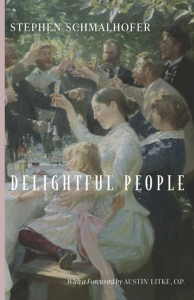
Stephen Schmalhofer’s “Delightful People” (Cluny, $17.95)
This little book introduces the reader to a series of faces whose lives and works intertwined to produce some of America’s finest works of literary and visual art. From Willa Cather to Henry James to John LaFarge, readers will learn of the friendships, challenges, and faith experiences that inspired these professionals.
Who would have imagined that a group of literary friends would have found inspiration and solace in Marian art in Rome? And who knew that a boy raised by Father Michael McGivney, founder of the Knights of Columbus, would become a priest and impact the family of an influential Italian businessman? The perfect book to read on a summer evening, “Delightful People” blends history, culture, and faith seamlessly and will stir both thought and conversation.
KATHRYN JEAN LOPEZ
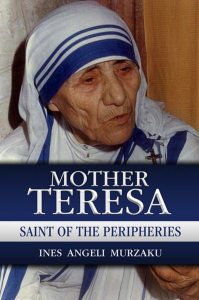
Inez Angeli Murzaku’s “Mother Teresa: Saint of the Peripheries” (Paulist Press, $29.95)
Mother Teresa can be used and abused, misunderstood and miscommunicated, as has happened recently in The New York Times, among other places.
Murzaku, a professor of Church history and director of the Catholic Studies Program at Seton Hall University, sets the record straight, focusing on the truth of the history, the holy collaborations, and the depths of her prayer — at least, to the extent we can know. “Mother Teresa: Saint of the Peripheries” can help us be more like her, letting God stretch our hearts for him in love of others.
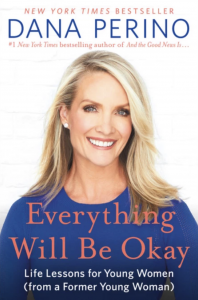
Dana Perino’s “Everything Will Be Okay: Life Lessons for Young Women (from a Former Young Woman)” (Twelve, $17.99)
Former presidential press secretary Perino is some of the best of America. She prioritizes family, faith, and mentoring. She is all about giving back and looking out for others.
Her book is reflective of this and, like her “And the Good News Is…: Lessons and Advice from the Bright Side,” are encouragements to make it a point to be grateful, and never letting anyone get lost in the shuffle.
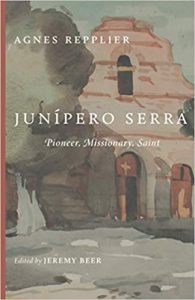
Agnes Repplier’s “Junípero Serra: Pioneer, Missionary, Saint” (Cluny Media, $19.95)
You will want to get yourself on the Cluny Media e-mail list. They are constantly publishing and republishing beauties. Repplier’s “Junípero Serra: Pioneer, Missionary, Saint,” is among them, a short portrait of the missionary saint and a meditation on his love for God through those he served.
There is an array of novels to choose from: I’m currently reading “Mr. Blue” ($17.95), by Myles Connolly and Stephen Mirarchi, which a priest friend tells me has the most beautiful description of the Blessed Mother (though it didn’t come out last year; it was republished in 2016, but I can be slow), and Rumer Godden’s “In This House of Brede” ($19.95), a fictional journey into the supernatural beauty and real humanity of the convent.
For spiritual reading, I’ve been dipping in and out of “The Gifts of the Holy Spirit in the Dominican Saints” ($16.95) by Ambroise Gardeil, OP, and “Only Jesus: What It Really Means to Be Saved” ($11.99), by Father Luis M. Martinez, who was once archbishop of Mexico City.
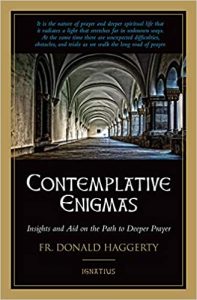
Father Donald Haggerty’s “Contemplative Enigmas: Insights and Aid on the Path to Deeper Prayer”(Ignatius, $14.75)
Father Haggerty’s book is a contemporary classic spiritual read. Like some people who talk about Thomas Merton’s “Seven Storey Mountain,” we should be drinking in Father Haggerty’s books on prayer.
As with his previous book, “The Contemplative Hunger, Contemplative Provocations, and Conversion,” just about each paragraph in “Contemplative Enigmas” could make for a weeklong retreat. “Contemplative Enigmas” is a rich treasure for a deeper life of prayer, a life lived intimately and boldly with God.
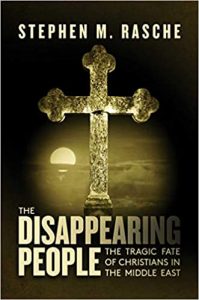
Stephen M. Rasche’s “The Disappearing People: The Tragic Fate of Christians in the Middle East” (Bombardier Books, $22.95)
Pope Francis did a remarkable thing when he defied COVID-19 and terrorism warnings and visited Iraq earlier this year. His apostolic journey there was a warm embrace of the Christian people there, letting them know they are not forgotten, that the world sees their suffering for Christ.
Rasche is an American who works for the Archdiocese of Erbil in Iraq and has written the backstory to understanding so much of the importance of Pope Francis’ time in Iraq — a papal first.
We who are still blessed with religious freedom, even with its challenges, really should feel an obligation to read it and pray for our brothers and sisters in Christ who are willing to die for him. We have so much to learn from them.
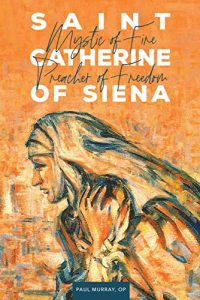
Father Paul Murray, OP’s “Saint Catherine of Siena: Mystic of Fire, Preacher of Freedom” (Word on Fire Institute, $27)
This is the latest from Father Murray. St. Catherine was a woman who understood that liberation is only to be found in Christ.
Father Murray’s writings always highlight his own mystical lens on the world and makes St. Catherine accessible to all of us, knowing we’re called to something so beyond our ability without becoming more and more immersed in God’s grace daily.
MSGR. RICHARD ANTALL
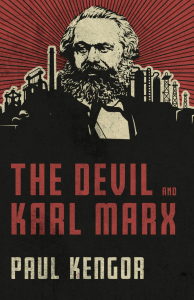
Paul Kengor’s “The Devil and Karl Marx” (Tan, $29.95)
Kengor is a college professor and rather prolific writer who has studied Communism for many years. When I received his book, “The Devil and Karl Marx,” I was eager to read it.
The professor has read many books and is very generous both with direct quotes from his sources and with information that I was not aware of. He has read the atheistic poetry of Karl Marx as a young man and an extraordinary number of books, articles, and Wikipedia posts.
If that last phrase sounds like a clunker it is because I have some real questions about Kengor’s books. It reads like a podcast by a curmudgeonly professor who is much too prone to sarcastic characterizations of historical figures (“Marxism’s founder was a seriously perverse man who brooded in misery. …”) and some reportage that sounds like Conspiracy Theory 101. Some real research lost in purple prose.
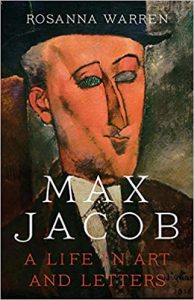
Rosanna Warren’s “Max Jacob: A Life in Art and Letters” (Norton, $21.60)
This book got many good reviews in serious publications and is the work of a lifetime of research. Are 700 pages a lot to read about a minor French poet? There was a lot to him.
Jacob was a painter and a figure in the art world of Pablo Picasso, his roommate and godfather, as well as Amedeo Modigliani. At the same time, he was also a poet and knew Guillaume Apollinaire, the surrealist doyen of French letters at the beginning of the 20th century.
He was a convert and part of the French Catholic mini-renaissance that included Jacques and Raissa Maritain. His whole life he struggled with his same-sex attraction. And he was a victim of the Holocaust because of his Jewish descent, dying of sickness before he could be put on a train to Auschwitz.

